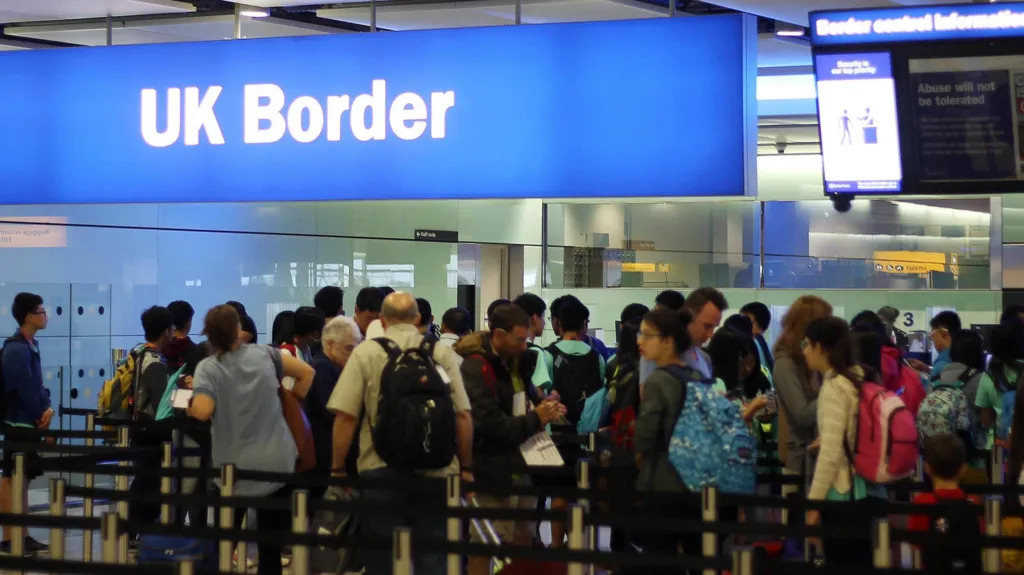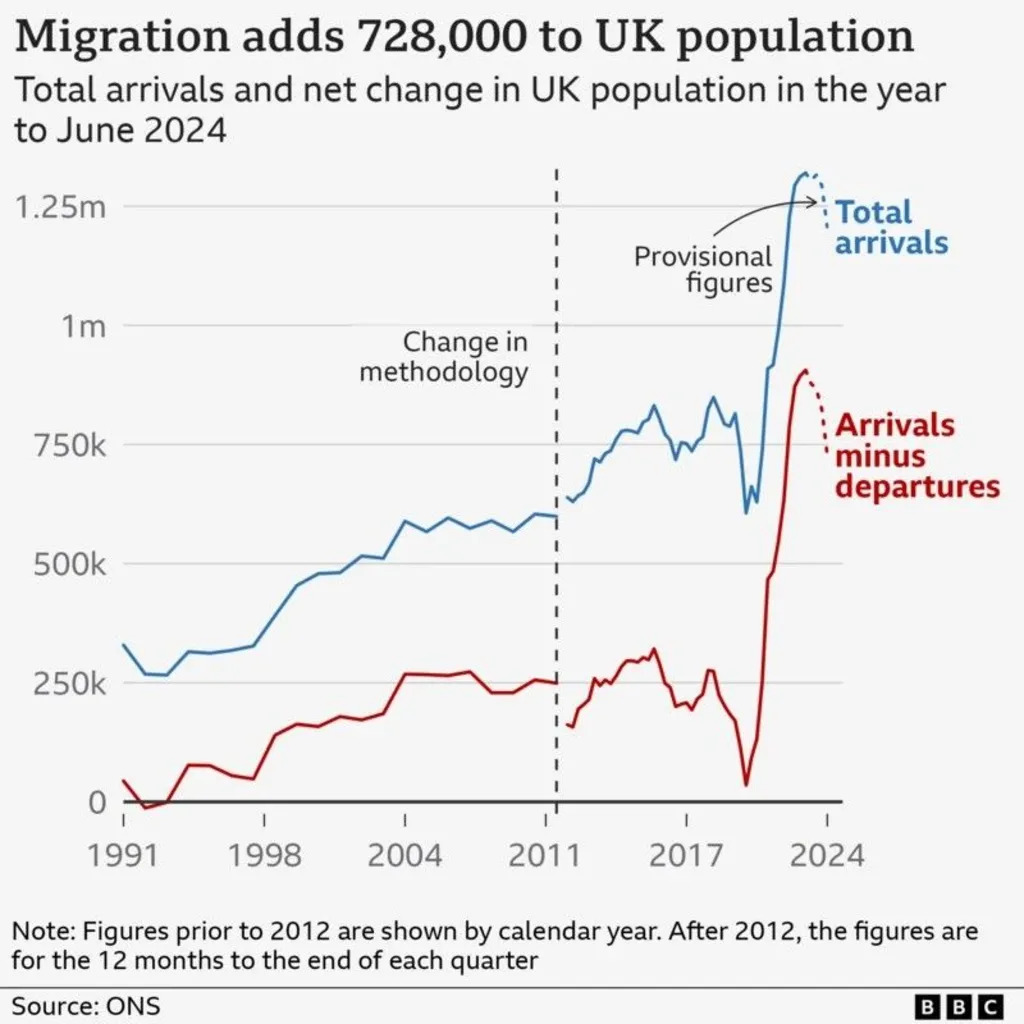Net migration hit record 906,000 last year

(Photo credit: PA Media)
Source: BBC
Net migration into the UK hit a record 906,000 in the year to June 2023, much higher than previously thought, official figures show.
The Office for National Statistics (ONS) originally estimated it was 740,000 but has now revised this figure upwards by 166,000.
It said annual net migration - the difference between those entering and leaving the country - has since fallen to 728,000 in the year to June 2024.
Sir Keir Starmer seized on the figures - which cover a period before Labour took office - to accuse the Tories of “running an open borders experiment”.
He called the increase in net migration in recent years "off the scale".
The PM promised that proposals for new laws to bring immigration down would be published "imminently".
Conservative shadow home secretary Chris Philp said the idea his party pursued an “open borders experiment” in government was “clearly nonsense”.
He said Sir Keir had "no credibility" on migration and what he had announced had "almost no substance".

“This is a man who has ruled out having a cap on legal migration, it’s a man who cancelled the Rwanda deterrent before it even started. On his watch already small boat crossings are up by 23% compared to last year," he added.
Speaking at a Downing Street press conference, the prime minister said the "shocking" statistics showed the previous government had increased levels of migration “by design, not accident”.
He promised changes to the rules on work visas and skills training to reduce the dependence on foreign workers in some parts of economy.
But he declined to set a target for reducing overall net migration, adding that aiming for "arbitrary" figures had "achieved absolutely nothing" in the past.
Immigration has risen sharply under the points-based system for work visas put in place by the Conservatives after Brexit.
Boris Johnson's government also allowed students to stay in the UK for longer after graduation find a job, and expanded the visa route for workers in the healthcare sector.
Rishi Sunak then tightened rules, contributing to the fall this year, including by restricting the ability of international students and care workers to bring family members into the UK, and raised salary thresholds for work visas.
Dr Ben Brindle, a researcher for the Migration Observatory at the University of Oxford, said:
"We are yet to see the full impact of the visa restrictions in the data, although this initial data from the summer suggest that migration levels will not necessarily fall below pre-Brexit levels once the policy changes have bedded in."
Conservative leader Kemi Badenoch has said her party got its migration policy "wrong" and she pledged to set a "strict numerical cap" - although she has yet to commit to a number.
Reform UK leader Nigel Farage called the latest figures "horrendous" and he had had "enough of being lied to" by the Conservatives. The numbers would be "even worse" under Labour, he added.
The ONS now says 82,000 more people came to live in the UK than they previously thought and 84,000 fewer people left the country.
Other reasons given by the office for the upward revision in numbers include more information on Ukraine visas, and improvements to the process for estimating migration of non-EU nationals.
The ONS said the numbers were still "official statistics in development", meaning that they may be revised in the future as more data becomes available.
Separate figures from the Home Office show more than 130,000 people were awaiting an initial decision for their asylum case as of September. The number of those claiming asylum has more than doubled since September 2021.
Labour say they have hired more caseworkers to tackle the asylum backlog.
